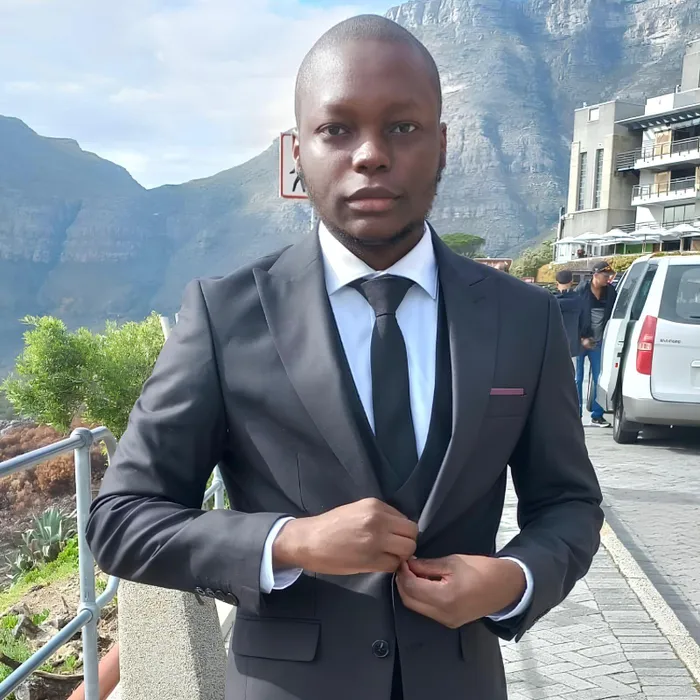
Is Mukhethwa Dzhugudzha the voice South Africa needs to combat misogyny?
Image: Supplied
Mukhethwa Joshua Dzhugudzha, a 24-year-old self-proclaimed feminist from South Africa, is rising as a warrior for women's rights in the nation's increasingly sexist digital landscapes. With a platform boasting hundreds of thousands of followers, he is committed to uplifting rather than degrading women, offering a voice to many who are often silenced by societal norms.
"What drove me to start posting was a combination of anger and empathy. I kept seeing South African women speak out about abuse, violence, and inequality, and I saw how quickly they were mocked, ignored and even threatened," Dzhugudzha explained in an interview with IOL.
Frustrated by the pervasive silence among men regarding these issues, Dzhugudzha turned to TikTok as a powerful tool for change. He recognised that he could not remain silent in the face of rampant misogyny.
"I realised that silence from men makes the problem worse. I started posting commentary videos not because I had all the answers but because I couldn’t justify staying silent anymore," he said.
His aim is clear: to validate women's experiences in a country where they are too often dismissed or blamed. Dzhugudzha highlights the discomfort many men show when addressing misogyny, noting that South African men frequently express sentiments that would horrify their own mothers and sisters. "I will not play it safe. I want men to unlearn what they’ve been taught, reflect, and change," he added.
His efforts have resonated with many women, who express gratitude for finally feeling heard and defended. "My content has been overwhelmingly well-received by women, many of whom say they finally feel heard and protected. I've built a strong, loyal community that constantly engages, shares, and defends my work," Dzhugudzha shared. While his candid approach may incite anger from some men, he welcomes the backlash, recognising that it can spark necessary conversations.
Dzhugudzha attributes much of his perspective to bell hooks' seminal work, "The Will to Change," which offers insights into masculinity and patriarchy. He believes that the patriarchy harms not only women but men too, instilling harmful ideals of control and emotional suppression. "It helped me realise that healing and justice go hand in hand," he stated.
Addressing the alarming rates of gender-based violence and femicide (GBVF) in South Africa, he called on the government to prioritise prevention over punishment. "It's essential we invest in comprehensive sex and consent education in schools and create public campaigns that dismantle toxic masculinity from a young age," he asserted.
The activist also challenged men to take collective responsibility for these crises instead of expecting women to bear the burden of fixing a problem they did not create.
Critiquing the media's complicity in normalising misogyny, Dzhugudzha argues that sensational content often profits from outrage and perpetuates harmful stereotypes.
"South African media plays a big role in normalising misogyny. When you see certain podcast hosts dehumanising women, they are doing that deliberately. They know that making people angry will garner views. And unfortunately, this works," he said, pointing to the increasingly pervasive misogyny in the digital space.
As online platforms become rife with radicalised misogyny, Dzhugudzha sees this trend as a backlash against progress. "We need more content to counter the narrative, voices that challenge, educate, and disrupt these misleading narratives. That’s what I do: offer a different kind of masculinity, one rooted in justice, not dominance."
IOL News
